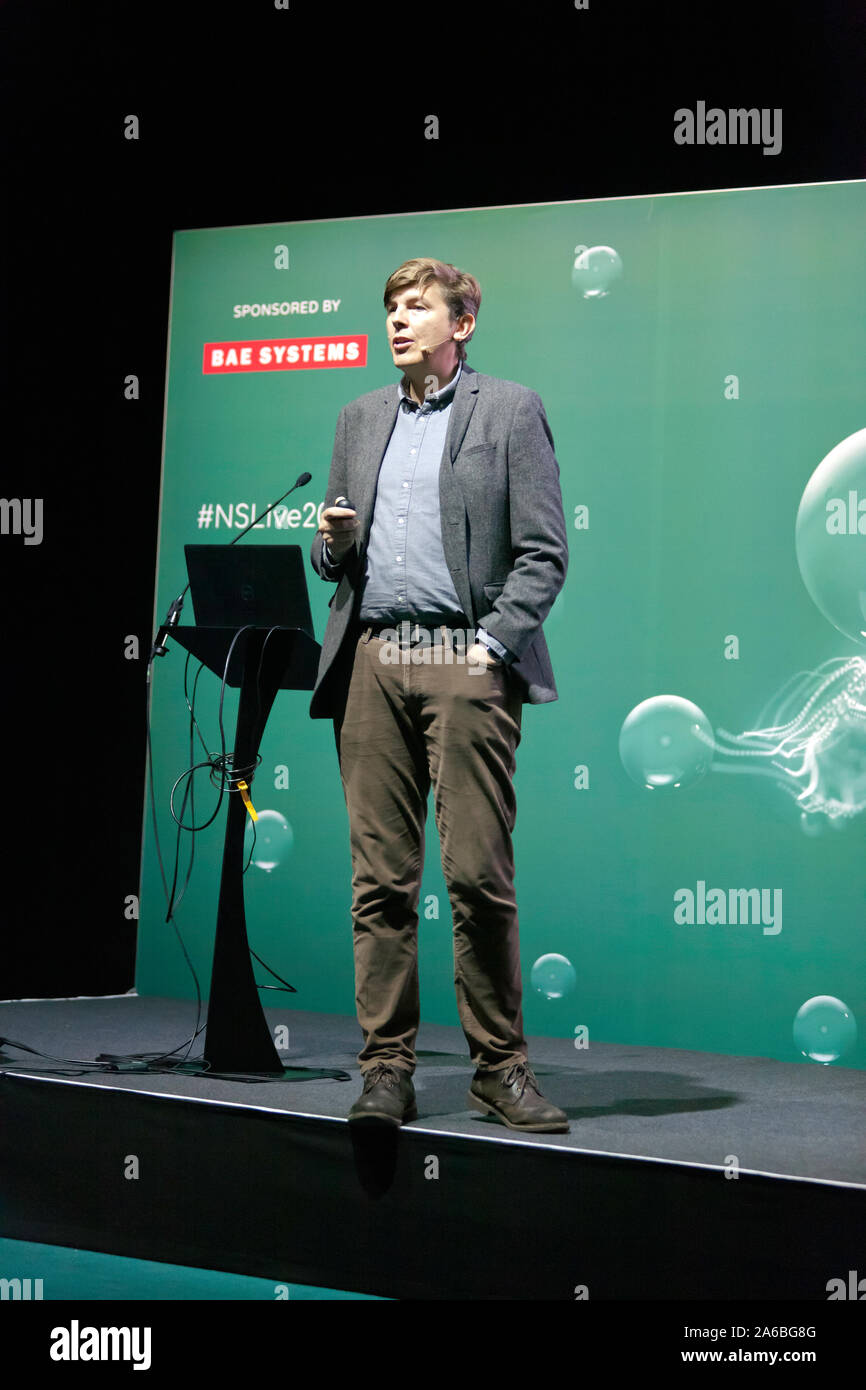Tony Veale , Engineer, at the University College Dublin, giving a talk entitled "Twitterbots: good, bad or quirky", on the Technology Stage, at New Scientist Live 2019

Image details
Contributor:
John Gaffen / Alamy Stock PhotoImage ID:
2A6BG8GFile size:
60.2 MB (1.9 MB Compressed download)Releases:
Model - no | Property - noDo I need a release?Dimensions:
3744 x 5616 px | 31.7 x 47.5 cm | 12.5 x 18.7 inches | 300dpiDate taken:
12 October 2019Location:
ExCel London, One Western Gateway, Royal Victoria Dock,More information:
This image could have imperfections as it’s either historical or reportage.
In the collective imagination, Twitterbots typically hang out with the viruses, hackers and other ne’er-do-wells of the digital realm. There are many reasons these autonomous systems get a bad press, and most are hard to argue with. But Tony Veale and Mike Cook are here to redress the balance and talk about some of the good reasons to embrace Twitterbots, or, indeed, generative bots of all kinds, and see them not as trouble makers but as conceptual provocateurs. Tony and Mike show how bots can give algorithmic form to fun, whimsy and all the creative possibilities of language. Tony Veale has worked in AI research for 25 years, in academia and in industry, with a special emphasis on metaphor, humour and linguistic creativity. His latest book is "Twitterbots: Making Machines That Make Meaning". Tony led the European Commission’s coordination action on computational creativity and collaborated on international research projects with an emphasis on computational metaphor and imagination. He also runs a website dedicated to explaining AI with humorous metaphors at RobotComix.com He has divided his career between academia and industry. In the latter, he has developed text-understanding and machine translation systems for Hitachi (in particular, the translation of English into American Sign language, ASL), as well as natural-language-processing tools for the CYC project in Cycorp at Austin, Texas, and patented web-based question-answering technology for Intelliseek (Cincinnati, Ohio) and Coreintellect (Dallas, Texas), where he held the position of Chief Scientist. During his tenure on the CYC project in Cycorp inc. he developed a model of analogical reasoning for CYC and contributed to the DARPA-funded High-Performance-Knowledge-Bases (HPKB) and Rapid-Knowledge-Formation (RKF) projects. He was, from 2002 -- 2007, the academic coordinator for UCD's unique international degree programme in Software Engineering, which UCD delivers in Shanghai at Fudan university.